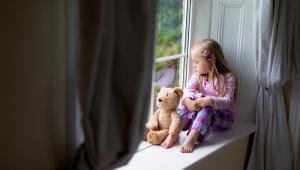Commissioner Anne Longfield has set out a range of policy suggestions she wants included in party manifestos, ahead of a potential election, to “transform life chances for all kids”, in a report out today.
The commissioner noted that the TFP has had “considerable success” since its introduction in 2011 but warned that funding will run out entirely in March 2021.
The programme aims to help families in England with problems such as anti-social behaviour, mental health issues, domestic abuse and involvement in crime.
A policy evaluation of the TFP produced by the government earlier this year said it had spent £920m since 2015 and had helped up to 400,000 families. It also suggested it had reduced the proportion of children going into care by 32%.
These findings sparked calls from council leaders to extend the programme beyond 2021.
Longfield’s report also focuses on child mental health, noting that one in eight children suffers from some form of ‘mental disorder’, according to a national survey from NHS Digital in 2017.
To tackle this the commissioner suggested that there should be a trained mental health counsellor in every school.
On top of this, schools should also remain open in the evenings, weekends and holidays to provide a range of activities including sport and art. This, the commissioner said, would improve mental health, teach children important skills and ease parents’ childcare costs.
The remaining three “core” demands from the report were:
- Adequate funding for Special Educational Needs and Disabilities
- Police officers and youth workers in schools to improve safety
- Establish a cross-government cabinet committee for children.
Longfield said: “The building blocks of a good childhood haven’t changed – secure relationship, a decent home and inspiring schools. I want politicians to think seriously about whether they are truly prioritising these things for children.
“I’ve heard more national political conversation about HS2, water nationalisation and tax cuts – and of course Brexit – than I have about children.”
She added: “Children do not have a vote. Unless political parties choose to listen to them, they do not have a voice.
“We should be ashamed that there are literally millions of kids in England not having the childhood we in a decent society would want them to have.”
The Department for Education has been approached for comment.











